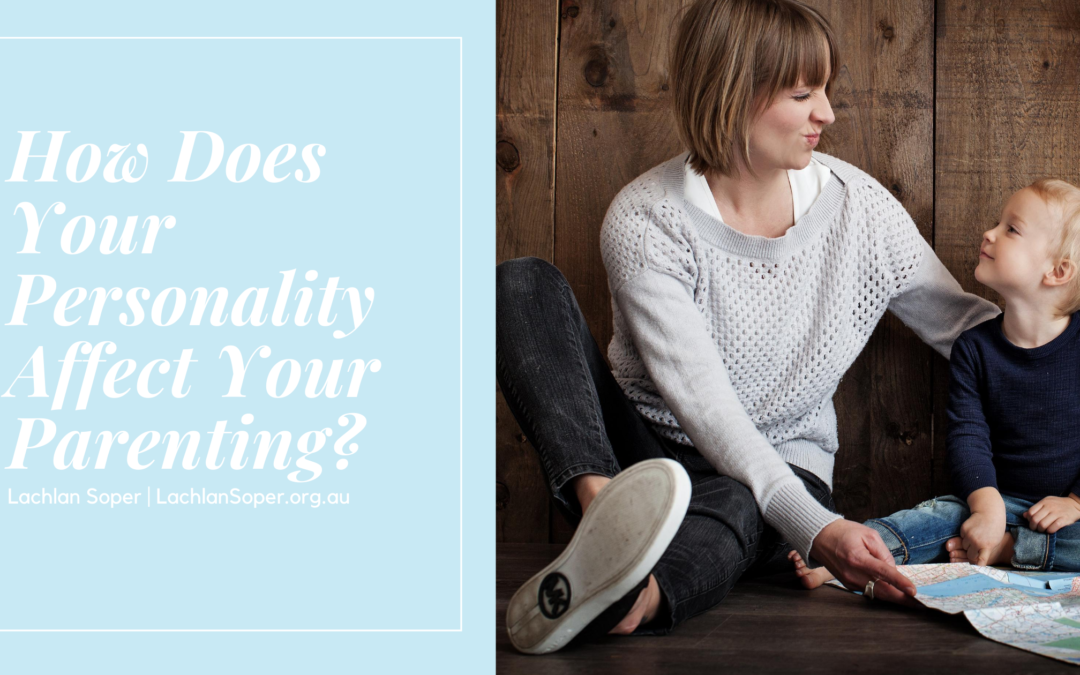We each have natural ways we respond when tired, stressed, under pressure and want things done. It’s essential for parents to be aware of their natural responses so that we can have insight into how they affect our children, both in the short term, and as they develop into young adults (and even one day parents) themselves.
Consider doing the Personality Profile Assessment to learn more about your personality. Pages 5 and 6 give a brief overview of the strengths and weaknesses, solutions and tips relating to these personality traits.
High Achieving People (eg: Choleric personality type)
Some parents are highly successful in their fields of work and other hobbies. A problem with high achievement is that it can lead to you, as a parent, having high or unrealistic expectations on your children (as you may have for yourself, work colleagues or staff). Successful people are great at modelling success and confidence, but sometimes can correct others, perhaps too much, and this can be damaging to kids’ self-esteem.
This can cause significant stress in your children and they may only feel a sense of love from you when they “achieve”. This can lead to a desire in them, through their lives, to seek love and affirmation through attaining success.
It’s important to realize that we are all broken, we all have rough edges, we all make mistakes. I’m sure successful people have made more mistakes than most to be successful! So, try letting your kids see you make mistakes. Let them see how you learn from your mistakes. Listen to your kids, encourage them to learn through their own mistakes. Overtly show them unconditional love no matter how they go. Listen to them, rather than lecture them. Encourage their ideas and let them experiment under your supervision and safety. This will foster teamwork as a family.
Controlling Parents (eg: choleric/melancholic personality types)
Control often comes from a place of fear. It can be fear of loss, fear of harm, or even fear that you are wrong. However, control can have its benefits too. People who are controlling are often organised, like things done certain ways, are often leaders at work and society, and they tend to get things done efficiently and promptly. These are good things to model to children.
However, controlling parents, a bit like high-achieving parents, may tend to order, correct and direct their kids. They may be rigid. Sometimes an underlying fear in the parent may manifest as a need to be in control. Kids having their own (often unexpressed) hopes, dreams, desires, and expectations may well push back at controlling parents as they may feel bossed around. This can escalate a conflict, lead to kids digging their heels in, and then a yelling match can quickly ensue.
Try, where possible, to be more easy-going. It will help both you and your kids. Children are like the Second Law of Thermodynamics – Entropy – “everything tends towards disorder”. There are great benefits in encouraging them to be organised and tidy, but trying to control little people who by nature “tend towards disorder” can cause huge stress on the family unit. Learn to be like Elsa from time to time “let it go”.
Where possible, safe and reasonable, ask the children to get involved with decision making, so that they can see you both trust them and are enabling them to grow up.
If you put yourself in their shoes, how would you feel?
People Pleaser Parents (eg: Phlegmatic personality types)
People pleasers often have many friends. They struggle to say no and give in to other ‘stronger’ personality type adults and persistent and nagging children. They are conflict avoiders – with other adults or their children.
A consequence of this is that children may well pester you and ignore you. It might be to be able to do something at home (eg: have some screen time) when you have said “no”, or to buy some lollies when they are with you at the supermarket. This can result in disrespect for your authority as a parent. In this type of parent-child interaction, a child who knows they can get away with things may well do what they want and not obey their parents. People-pleasing parents may also react by doing things for their kids that they are capable of and should do for themselves (eg: cleaning their rooms). A consequence for you as an adult is that you may feel ignored and become bitter or resentful, deeply unhelpful emotions for you.
Consider your answers to your children and let your “yes be yes, and your no be no” (Matthew 5:37). Not stubbornly so, but in a well-considered way that lets your children know that people in authority are to be respected. It’s okay to say “no” to your kids, even though you want to have fun with them, you are there to raise and mature them, and this comes before any friendship. You may be fearful that when you make an unpopular (but wise) decision, you’ll lose your children if you discipline them. The opposite is true. You’ll lose them if you don’t. An approach is to be “firm, fun and fair”.
Firm in your boundaries, fun wherever possible, and fair to them both individually and in comparison with their siblings and others. The Bible says in Deuteronomy 5:16 “Honour your father and mother…so it may go well with you”, and again in Proverbs 22:15 “All children are foolish, but firm correction will make them change” – remember that being firm with your kids is for their benefit.
Easy Going Parents (eg: Sanguine personality type)
Easy going parents often don’t make many routines or rules, and allow their children to set their agendas.
This can lead to actions based around the kids’ short-term desires, rather than what may be best for the child and family unit in the medium to long term.
Easy going parents would benefit from (and their kids benefit from) clearly communicated rules and routines. These rules should be followed, because if they are not, children learn to nag and push boundaries with the expectation that they can get their own way, resulting in spoilt or demanding children. And over-entitled kids, eventually can end up becoming demanding employees and spouses with the same childish behaviours, but with greater consequences.
It’s important to understand the pitfalls (and benefits) of our personality types. They reflect our gut reactions, especially when stressed, tired, hungry or angry. Our personalities determine in large part how we respond to those in our lives, in particular our spouses or children. These automated responses tend to come out when we are stressed and busy. These tendencies can be negative and model conflict or power struggles with our children. Although they may be our intuitive, gut, way of reacting, when we are aware of our natural tendencies, then we can temper our responses and choose a more effective response, to model positive behaviours in our children.

